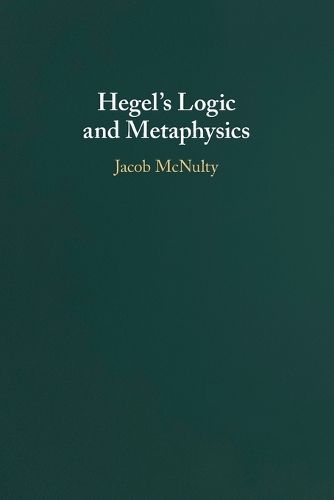Readings Newsletter
Become a Readings Member to make your shopping experience even easier.
Sign in or sign up for free!
You’re not far away from qualifying for FREE standard shipping within Australia
You’ve qualified for FREE standard shipping within Australia
The cart is loading…






Kant said that logic had not had to take a single step forward since Aristotle, but German Idealists in the following generation made concerted efforts to re-think the logical foundations of philosophy. In this book, Jacob McNulty offers a new interpretation of Hegel's Logic, the key work of his philosophical system. McNulty shows that Hegel is responding to a perennial problem in the history and philosophy of logic: the logocentric predicament. In Hegel, we find an answer to a question so basic that it cannot be posed without risking incoherence: what is the justification for logic? How can one justify logic without already relying upon it? The answer takes the form of re-thinking the role of metaphysics in philosophy, so that logic assumes a new position as derivative rather than primary. This important book will appeal to a wide range of readers in Hegel studies and beyond.
$9.00 standard shipping within Australia
FREE standard shipping within Australia for orders over $100.00
Express & International shipping calculated at checkout
Stock availability can be subject to change without notice. We recommend calling the shop or contacting our online team to check availability of low stock items. Please see our Shopping Online page for more details.
Kant said that logic had not had to take a single step forward since Aristotle, but German Idealists in the following generation made concerted efforts to re-think the logical foundations of philosophy. In this book, Jacob McNulty offers a new interpretation of Hegel's Logic, the key work of his philosophical system. McNulty shows that Hegel is responding to a perennial problem in the history and philosophy of logic: the logocentric predicament. In Hegel, we find an answer to a question so basic that it cannot be posed without risking incoherence: what is the justification for logic? How can one justify logic without already relying upon it? The answer takes the form of re-thinking the role of metaphysics in philosophy, so that logic assumes a new position as derivative rather than primary. This important book will appeal to a wide range of readers in Hegel studies and beyond.